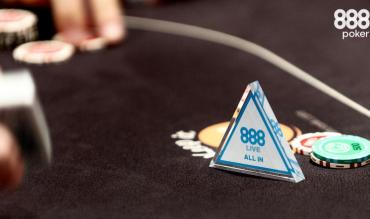Most poker players develop a strange relationship with money while at the tables. They can’t really help it. Variance can be wild when playing poker online. So, people become more desensitised with each experience.
It's like eating blue cheese or hot curry: the extreme flavours/ swings eventually become normal.
This situation dramatically impacts how poker players think, behave, and interact with the broader world.
Let’s discuss how to maintain a healthy focus on our bizarre relationship with money in poker games.
Flip For It?
Take a meal out, for example. With poker players, there’s no awkward “Who had the salad?” or “I only had water, so here’s my $15”. Instead, it’s very common for poker players to settle food, bar, or any other kind of bill with some coin-flip or credit card roulette.
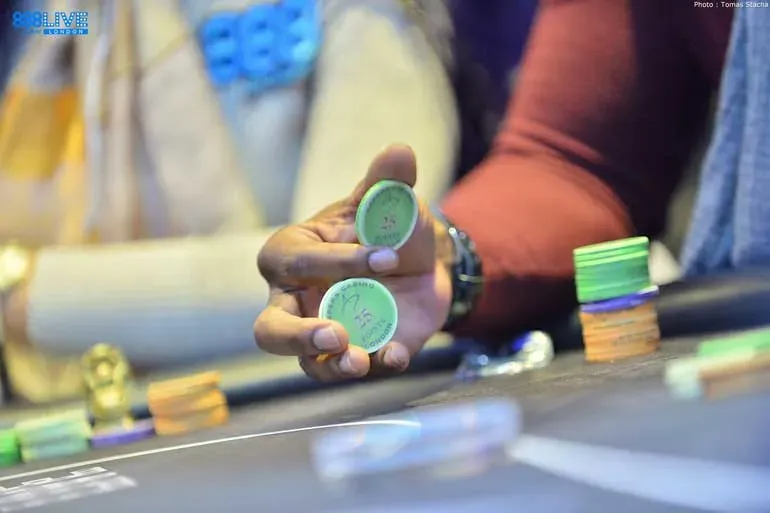
You might get funny looks if you try to flip the bill on a first date, but poker players love to gamble, which can be a lot of fun.
Reputation and integrity are significant factors in the industry, so expect a poker player to honour any bet they make.
The Fear of Loss
Results aren’t as important as decisions at the poker table, so players ignore the financial consequences of their plays. This outlook helps them manage tilt and play at the top of their game for longer. However, it can also cause some players to become sloppy with their real-world finances.
- This thinking can be as minor as splurging money on bar table service or sports betting too frequently, but it can get out of hand sometimes.
For example, a few years ago, a Russian player spent his last $11k on a $10k tournament entry and a $1k hotel room. As if that decision wasn’t insane enough, he won the event, requested his prize in cash and tossed it in a bin liner.
He hired a helicopter to take him to his friend’s hotel, threw the $500k on the bed, and did a trouser-less victory dance in a weird version of strip poker!
Ok, there may have been trousers and no strip poker, but the whole thing was complete lunacy, nonetheless. The Russian player's financial disregard made this player so brilliant at the tables, but it destroyed him in the real world.
As you might expect, he went broke many times.
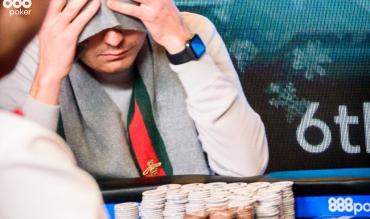
Although this is an extreme example, poker players have a real 'easy come, easy go' attitude towards money. It's not uncommon to see them taking big financial risks, both on and off the tables.
Since it's pretty easy for good players to find a staker if they go broke, some are more willing to push the limits. Unfortunately, these kinds of safety nets don't exist outside of poker.
Some poker players find themselves constantly rebuilding and then going broke. Some are so desensitised to financial risk that they treat their real-world finances just like their bankroll, which is a recipe for disaster.
Squandering money can also cause friction in a poker player's relationships.
Ordinary people aren't used to seeing money coming and going so liberally. So, they interpret someone who is unaffected by a bad day's losses as negligent or stupid—traits that aren't very attractive.
Keep Your Bet Sizing on The Tables
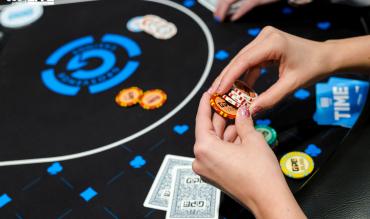
Poker players often quantify things in terms of buy-ins. Dismissing the cost of an impulse purchase as “just one buy-in” or “one failed 4bet bluff” might feel like a reasonable justification to splash out on something new.
But just like a leak at the table, this habit can compound over time and hit your bank balance hard in the long term.
In addition to showing poor discipline, rationality is flawed, too. While a failed bluff might cost $50, a good bluff's long-term EV - poker term for “expected value” - should be positive.
In reality, a $50 spend becomes the equivalent of 10 +$5 EV bluffs, which takes a long time to recoup. Generally speaking, it’s best to leave the bet sizing on the table.
Splashy By Proxy
Being around a group of poker players can be a lot of fun, but spending too much money hanging out with wealthy players can be easy. At big festivals like the WSOP many players hit the bars and clubs after a long day grinding, often splashing out on expensive bottle service.
It can be hard to resist the allure, so people often find themselves with a bigger bill than planned.
Keep this in mind if you’re lucky enough to go to the WSOP or researching where to play poker in Vegas this year!
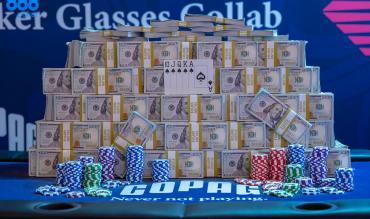
Pro Tip: Explain Basic Poker Maths to Your Partner
Poker players can develop a warped sense of money. Even with the healthiest financial habits, variance is an alien concept to the layperson. This fact leads to misunderstandings in a poker player’s relationships.
Most regular people’s earnings are proportionate to their performance. So, explaining how well you played can fall on deaf ears after a losing session. Even if you crushed, those unfamiliar with poker maths may dismiss it as the ramblings of a degenerate in denial.
- This situation is especially true if you come home with an empty wallet.
- Or if your partner sees someone making prodigious towers out of your formerly owned chips after they sucked out on a dry poker board.
Even the most support of partners has a limit, so it’s a good idea to explain basic poker math to yours. Once they understand the concept of variance, you can avoid a lot of drama by showing them a positive EV line whenever you run into an inevitable downswing.
Instead of giving you a hard time, they can offer support and sympathise with your situation. They’ll be more likely to encourage, making the downswing far less stressful.
